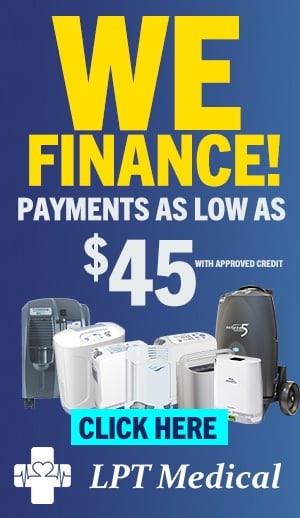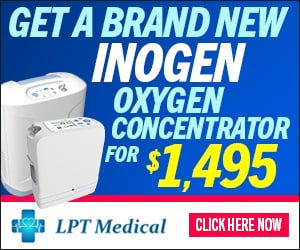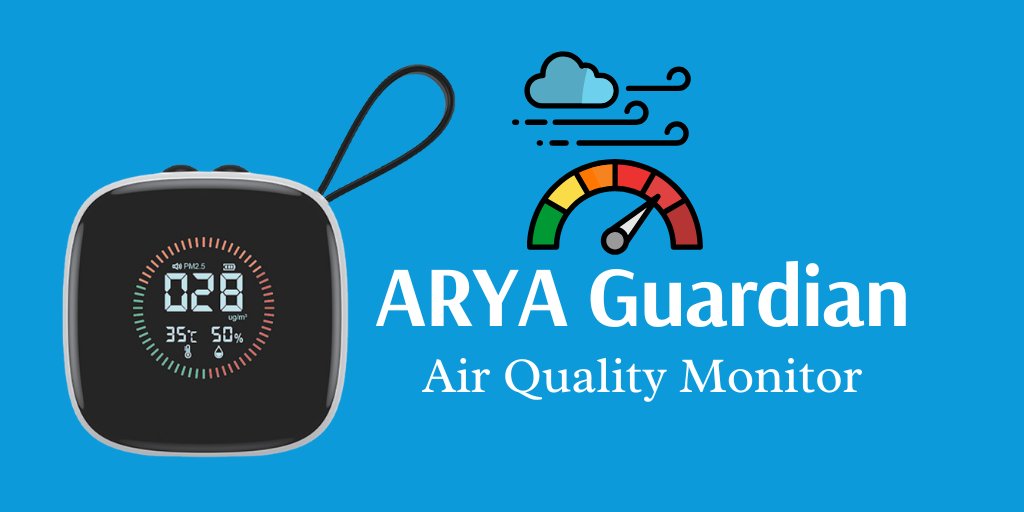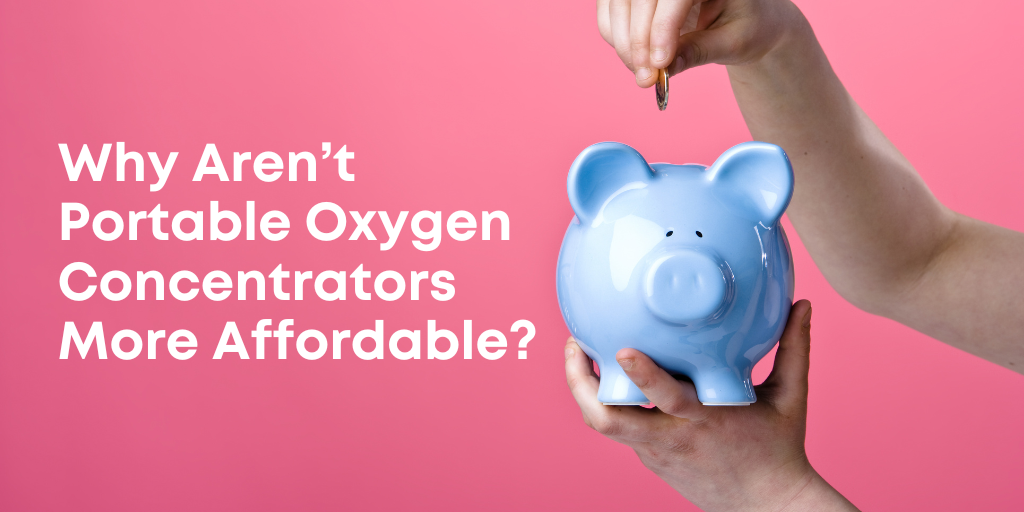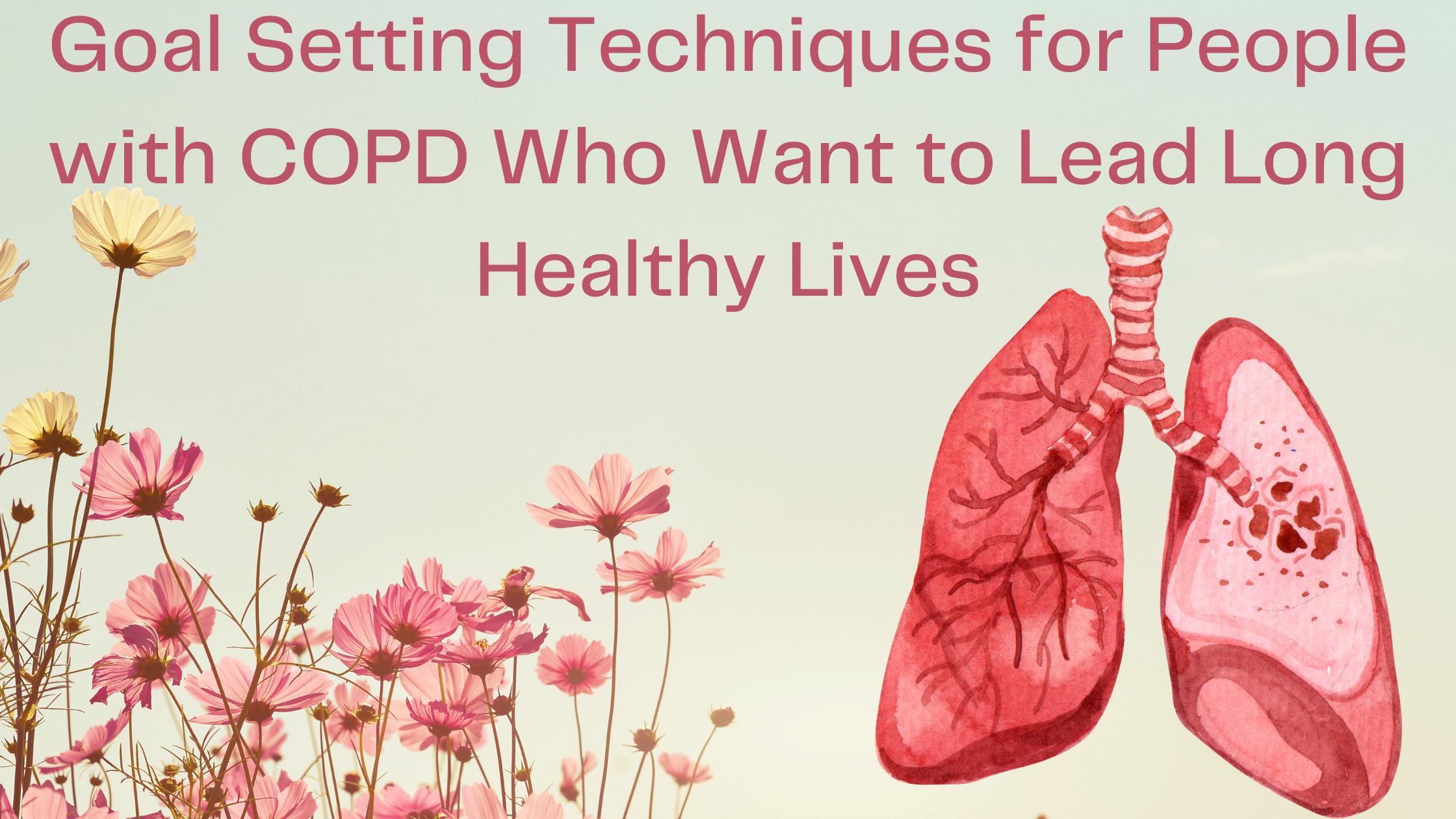Living with a chronic disease like COPD comes with many challenges, and financial challenges are no exception. Many people who are diagnosed with the disease find themselves blindsided by the high costs of medical equipment, prescription medications, and other necessary treatments.
While Medicare or other insurance providers can cover some of these costs, patients are often still responsible for a large portion of the bill. Many of these costs are rigid and unavoidable, but some can be minimized with a little forethought and research.
Of all of the medical expenses associated with COPD, the cost of medication is one of the most frequent, variable, and burdensome. Fortunately, it's often possible to get discounted prescription medications or payment assistance if you know where to look.
In this article we're going to help you save money by showing you how to find the best prices, discounts, and financial assistance for prescription COPD medications. We know not everyone can afford to pay for their medicine at full-price, and the options on this list can help you reduce the pressure that your disease puts on your budget.
It's difficult enough to handle the emotional and physical hardships of COPD without having to worry about money, too. So if you want to reduce your medical expenses, keep reading to learn about 11 different ways you can save money on prescription medications for COPD.
Go Generic

Many people cannot afford the inflated prices of name-brand medications. Luckily, you can often find off-brand, generic versions of the same medication at a much lower cost.
Although you should always check with your doctor first to be certain, you can rest assured that most generic medications work just as effectively as the more expensive versions. Despite the difference in cost, generic medicines are safe to use and are usually nearly identical to their name-brand counterparts.
All you have to do is talk to your doctor to potentially save a ton of money on your prescription medications. If there is an equivalent generic version of any of your medications available, your doctor will note it on your prescription slip to let the pharmacy know it's okay to use.
Order Your Prescription Online

If you want to save a decent amount of money on your medication, you'll have to look beyond your local pharmacy. Although they might be quick and convenient, brick-and-mortar pharmacies also tend to have the highest prices.
Unfortunately, many people don't realize that they have any other option besides their local pharmacy. In reality, there are dozens or more legitimate online and mail-order retailers that sell prescription medications, too.
However, make sure to research any online pharmacy thoroughly before entrusting it with your prescription. While many are trustworthy, some sites are unreliable, lack quality control, and even sell potentially dangerous counterfeit medications.
Always choose online pharmacies that are based in the United States and look for the “VIPPS” logo. VIPPS stands for “Verified Internet Pharmacy Practice Site,” and it's a good indicator of an online pharmacy's safety and legitimacy.

Also look for seals of approval from third-party organizations like the Internet Mail-Order Pharmacy Accredidation Commission (IMPAC), the Manitoba International Pharmacists Association (MIPA) or the Verified Internet Pharmacy Practice Sites (VIPPS). Accreditation from one of these organizations is another good sign that it's a pharmacy you can trust.
You should also avoid any pharmacy website that prices their drugs significantly cheaper than the typical market price because they might be selling dangerous counterfeit drugs. It's a good rule of thumb to assume that if a price seems too good to be true, then it probably is!
If you ask, your doctor or even your insurance provider might be able to recommend a trusted online pharmacy you can use. As long as you do your due diligence and find a legitimately licensed online pharmacy, you should not have to worry about the quality or safety of your medication.
Get a Prescription Discount Card

Prescription discount cards are another option that can significantly reduce the cost of your COPD medication. You can often get these discount cards from your doctor, local pharmacy, and other organizations like AAA. They are also available from a variety of online websites like WebMD and retail stores like Walgreens.
Many people are skeptical of prescription discount cards because they are free and widely available. However, they aren't a scam. All you have to do is scan your discount card at participating pharmacies to get a reduced price for thousands of different prescription drugs.
You can get a prescription discount card whether or not you have private health insurance, but you can only use one or the other to pay for your medication at any given time. However, prescription discount cards can often get you better prices than you can get through private insurance, especially for generic drugs.
To get the best deal, have the pharmacist run both your insurance and prescription discount card before you pay. That way you can see the price of the medication for both options and figure out whether your insurance company or discount card will give you the better deal.
Apply for a Patient Assistance Program

Did you know that many pharmaceutical companies have their own programs to help patients pay for their medicine? That's right, nearly all of the major drug companies have some sort of financial assistance program for all of their major medications.
These programs are usually called Patient Assistance Programs (PAPs), and they are designed to help low-income patients who cannot afford to pay the full cost of their medication. They offer discounted and sometimes even free medicine to patients who qualify.
Every patient assistance program has its own eligibility requirements that you have to meet in order to get free or discounted medication. While the exact criteria vary from program to program, there are three main requirements that nearly every PAP has:
- Must Have Low Income: You must not make over a certain amount of income to be eligible. The cutoff is usually about two times the federal poverty income level.
- Must be a US Resident: Most PAPs require you to live in the United States or be a US citizen to qualify.
- No Outside Prescription Coverage: You usually are not eligible if you are already part of another private or public prescription coverage program. You may not be eligible if you have public or private insurance.
You can usually figure out whether there's a patient assistance program for a drug you take by visiting the pharmaceutical company's website, but the information is sometimes difficult to find. If you need help finding a program that you qualify for, your doctor or pharmacist might be able to help
You can also find online tools that allow you to search through all available patient assistance programs all in one place. These sites make it much easier to find financial assistance programs that you might be eligible for.
All you have to do is search the name of a medication that you've been prescribed, and the site will pull up any and all assistance programs that are available for that drug. Then you will need to fill out an enrollment form, which the pharmaceutical company will then review to determine if you qualify for the program.
Here are a few sites you can visit to search for a patient assistance program that works for you:
- RxAssist
- The Partnership for Prescription Assistance
- RxHope
- NeedyMeds (This site also includes state-sponsored financial assistance programs in their database.)
Participate in a Clinical Trial

There are still many questions to answer about COPD and new treatments that need be studied. Medical research organizations regularly conduct studies on COPD medications and are often looking for participants to participate in clinical trials.
If you have COPD, you can apply to be part of a clinical trial that needs volunteers with the disease to test new treatments and medications for COPD. While all clinical trials have some risks, most are relatively safe and you will always get a full explanation of the study's risks and benefits before you participate.
There are several benefits you can get from volunteering for a clinical trial, the first being that they will pay for any medications or treatments they give you throughout the course of the study. You might even have the opportunity to try a new treatment before it is widely available to the general public.
Another benefit is the knowledge that you are helping to further scientific research on COPD. The study you take part in could end up leading to new medications, treatments, or drug combinations that could help many other people who have the disease. Some clinical trials also pay hundreds or thousands to compensate participants for their time, too!
To learn more about participating in a clinical trial, visit the National Institutes of Health website. To search for a clinical trial in need of participants, visit clinicaltrials.gov or search for COPD studies on healthline's clinical trial search tool.
Comparison Shop
Although you can get your prescription filled at any pharmacy, not all are equal. Many people don't realize that the prices of different drugs can vary widely between pharmacies, even pharmacies in the same city or on the same street corner.
If you want the best deal, you'll have to price shop to find the local pharmacy with the lowest prices for your medication. To make your search easier, you can use online price comparison tools like GoodRx or LowestMed to find the best local prices for a particular medication.
Get Free Samples
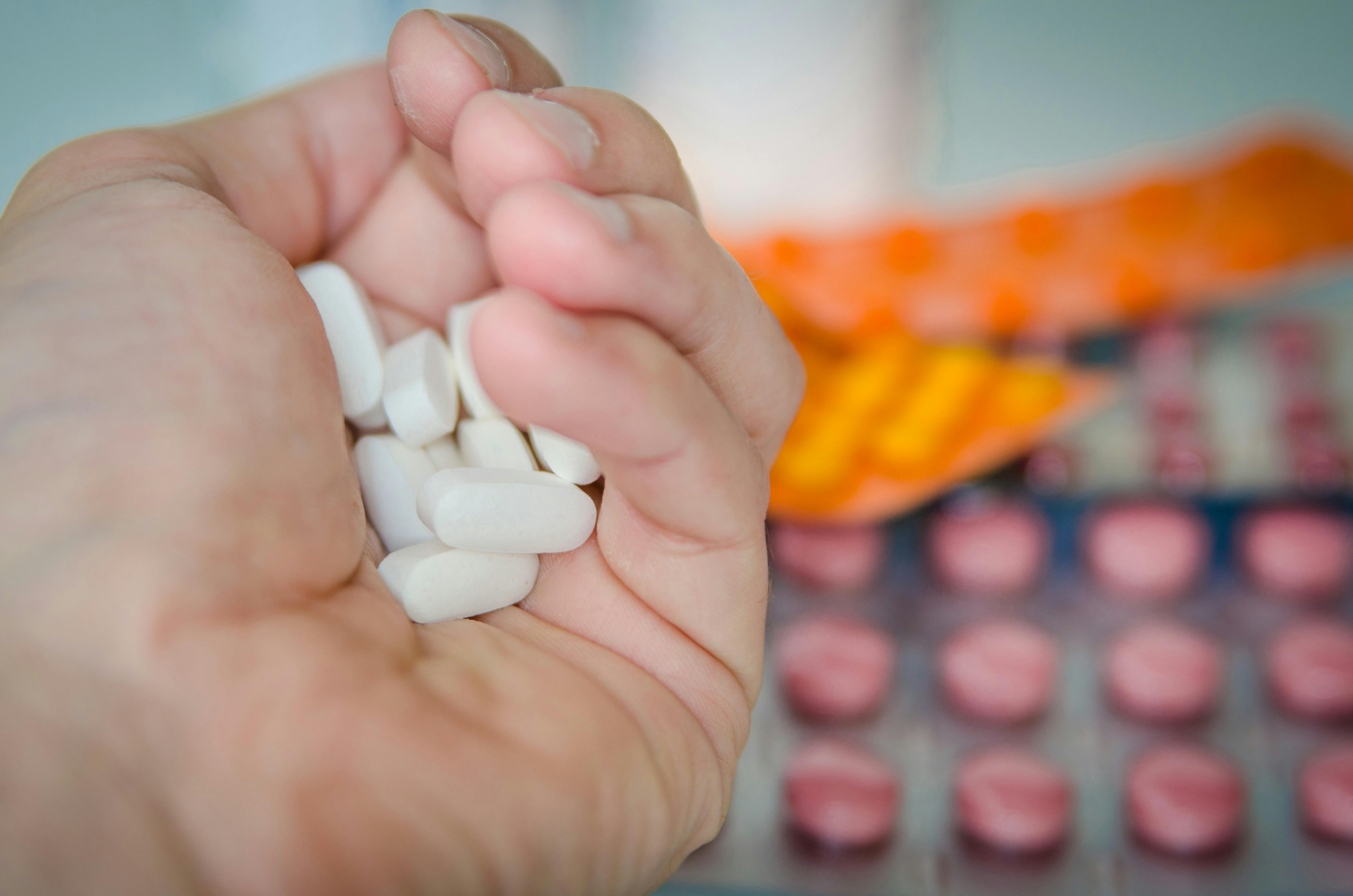
Pharmaceutical companies often advertise their medications by providing boxes of free samples directly to medical practitioners. Many doctors are happy to give some free samples to patients who need short-term doses or can't immediately afford the medication.
Some doctors will give you a couple weeks' worth of free samples if you ask, and they might even give you more if they know you are struggling to afford your meedication. While this is not a permanent solution, it might still save you a decent chunk of cash up front.
Free samples can also hold you off in the short term if you find yourself in a situation where you can't afford a new medication right away. Your doctor might be able to give you an immediate supply of medicine via free samples so that you aren't left un-medicated until you come up with a more permanent solution. This is also useful if you have to wait for medicine from a cheaper online pharmacy to arrive in the mail, since it usually takes at least one month.
Get Longer-term Prescriptions

If you have a medication that you know you'll be needing to take long-term, ask your doctor if you can get a larger prescription. Getting more pills per prescription means fewer trips to the pharmacy, and it also means fewer co-pays.
For example, if you can get a 90-day prescription instead of a 30-day prescription, you'll only have to pay one co-pay. So, instead of paying a separate co-pay every thirty days, you'll only have to pay it once every three months.
Ask Your Pharmacist for a Discount

A pharmacy's “list price” for a medication is usually much higher than the price that most people actually pay. In fact, most pharmacies actually expect patients to make use of coupons and other discounts rather than pay full price.
Whenever you go to pick up a prescription, always ask the pharmacist, “Is this the lowest price you can offer?” Many pharmacists have access to a variety of coupons and discount cards, and most will be happy to look for one that they can apply to your medication. It never hurts to ask, and you might be pleasantly surprised!
Tell Your Doctor About Your Financial Concerns
When doctors prescribe medication and other treatments, they don't always think about the financial burden it puts on their patients. That's why you should always speak up if you're on a budget or if you're worried about the cost of anything your doctor recommends.
If you tell your doctor that a treatment or medication is too expensive, there's a good chance your doctor can help you get a discount or find a cheaper alternative. As we mentioned earlier, many doctors also have access to a limited amount of free samples that they can give away, which can help reduce your costs temporarily.
Doctors understand the huge financial burden that medication can put on their patients, and most are willing to help you find more affordable options when they can. However, your doctor probably won't know you need help if you don't ask, so never be afraid to bring up any financial concerns you have about your treatments or medications.
Other Financial Assistance Programs

We've already talked about patient assistance programs and prescription discount cards, but there are a variety of other nonprofits and other patient advocacy organizations out there that might be able to help you.
Here is a list of several organizations and online tools you can use to find a patient financial assistance program that you are eligible for:
- State Pharmaceutical Assistance Programs: This document lists all of the US states that offer financial assistance for patient prescriptions along with links to each specific program. Some programs only apply to people who meet specific criteria: e.g. patients above a certain age, patients with specific diseases, people with disabilities, patients without insurance, etc.
- Patient Services, Inc.: This organization is dedicated to helping people who are living with chronic illnesses, including certain types of COPD. They provide financial assistance for qualified patients that can include insurance premiums, co-pays, and travel assistance.
- PAN Foundation: This nonprofit is dedicated to helping people with certain rare and chronic diseases afford the treatments and medications they need by providing financial assistance for insurance deductibles and co-pays. You must have health insurance and make no more than five times the federal poverty level in order to be eligible.
- The HealthWell Foundation: This is another nonprofit organization that helps under-insured patients with specific chronic and life-altering diseases pay co-pays for the medication and treatments they need. You will need to have health insurance and make no more than five times the federal poverty level in order to be eligible.
Note that many of these are need-based programs or only apply to patients with specific diseases that underlie or co-occur with COPD ( e.g. cystic fibrosis, Alpha-1 Deficiency, or Pulmonary Fibrosis). You might need to have low income or a disability in order to qualify for certain types of assistance.
However, it's worth taking a look and reaching out even if you don't have a disability or can't provide proof of financial need. You'll never know what opportunities are out there for you unless you ask!
Conclusion
Between the cost of hospital visits, medical equipment, and supplemental oxygen rental fees, managing COPD can get very expensive. If you add on to that the price of recurring monthly prescriptions, the cost of treating the disease can get unmanageable fast.
Luckily, with a little research and smart planning, you can usually find a way to get most COPD prescription medications at a discount.
If you are feeling strained under the weight of your medication expenses, don't hesitate to ask your doctor for advice and seek other avenues of support. If you take the time to pursue all the cost-saving opportunities we've discussed in this article, chances are you'll be able to find at least one solution that works for you.
Image attribution: https://traineracademy.org/


.png)

